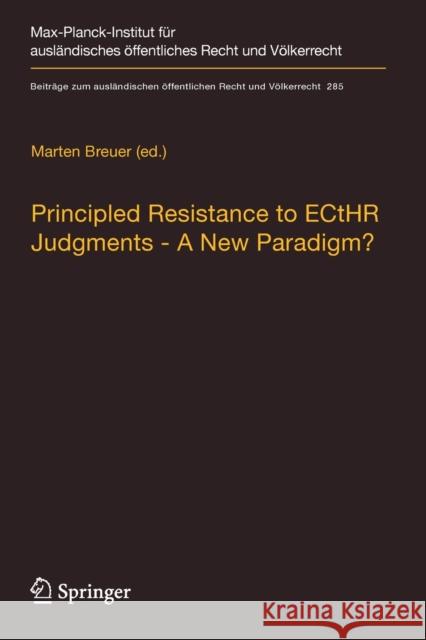Principled Resistance to Ecthr Judgments - A New Paradigm? » książka
topmenu
Principled Resistance to Ecthr Judgments - A New Paradigm?
ISBN-13: 9783662589885 / Angielski / Miękka / 2020 / 352 str.
Principled Resistance to Ecthr Judgments - A New Paradigm?
ISBN-13: 9783662589885 / Angielski / Miękka / 2020 / 352 str.
cena 523,30
(netto: 498,38 VAT: 5%)
Najniższa cena z 30 dni: 501,19
(netto: 498,38 VAT: 5%)
Najniższa cena z 30 dni: 501,19
Termin realizacji zamówienia:
ok. 22 dni roboczych.
ok. 22 dni roboczych.
Darmowa dostawa!
Kategorie:
Kategorie BISAC:
Wydawca:
Springer
Seria wydawnicza:
Język:
Angielski
ISBN-13:
9783662589885
Rok wydania:
2020
Wydanie:
2019
Numer serii:
000833953
Ilość stron:
352
Waga:
0.52 kg
Wymiary:
23.39 x 15.6 x 1.96
Oprawa:
Miękka
Wolumenów:
01
Dodatkowe informacje:
Wydanie ilustrowane











